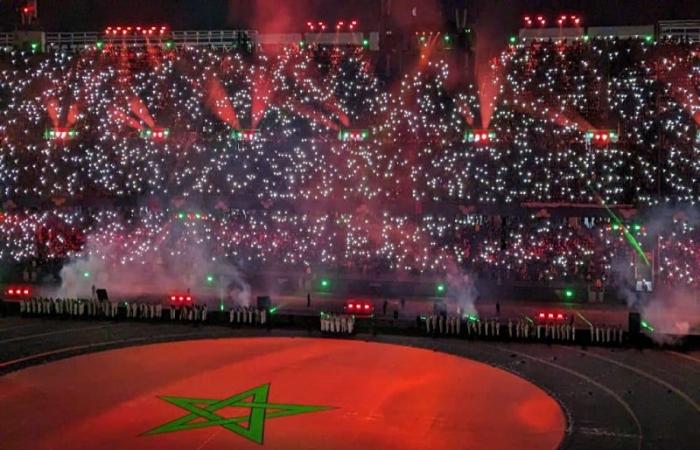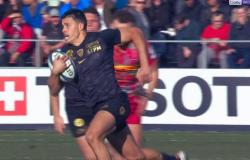In 2025, the sports economy represents a major strategic lever for the economic and social development of Morocco, with potential still insufficiently exploited to strengthen its impact on the national GDP.
In 2024, the private sector of the Moroccan sports industry represented approximately 1.56% of GDP, generating 21.18 billion dirhams and employing more than 11,500 people. This significant growth, marked by an increase of 17% compared to 2021 and 20% compared to the pre-Covid period, illustrates an encouraging dynamic. However, these results remain well below what could be achieved if more ambitious initiatives were implemented to fully exploit the opportunities offered by this sector.
National brands, like Bang Sports, perfectly embody the central role that the private sector can play in this dynamic. True national pride, this company illustrates Moroccan know-how in the design and manufacture of sports equipment, while being part of an approach to promoting “Made in Morocco”.
This label, in addition to promoting the creativity and quality of Moroccan products on international markets, plays a determining role in job creation and support for the local economy. It is imperative to further develop this type of initiative to maximize the economic impact of sport and strengthen its role in improving the country’s image abroad.
Sport also constitutes an essential vector for stimulating Morocco’s attractiveness as a destination for foreign investment. The organization of the African Cup of Nations (CAN) in 2025 for men and women as well as the U17 CAN and the U17 women’s World Cup, as well as the joint candidacy of Morocco with Spain and Portugal for the 2030 World Cup , perfectly illustrate this strategy.
These large-scale events not only attract foreign capital, but also contribute to the creation of direct and indirect jobs, the development of infrastructure and the stimulation of tourism.
For example, the renovation and construction of stadiums, improvements to the transportation network and efforts to promote local hospitality provide economic opportunities and strengthen Morocco’s image as a major player in sport on the international stage. .
Despite these advances, certain challenges persist. The low rate of sports licensees in Morocco, estimated at less than 1% of the population, remains worrying. Compared to countries like Turkey (4.1%) or France (23.5%), this figure highlights the low engagement of the population in organized sporting activities. This lack of involvement limits the capacity of sport to generate economic and social benefits on a large scale.
To reverse this trend, it is essential to put in place incentive public policies, further develop sports infrastructure in rural and urban areas, and launch awareness campaigns aimed at encouraging young people, women and other groups. underrepresented people to adopt an active lifestyle.
Sport also plays a crucial role in regional development and reducing inequalities between territories. Regions like Tangier-Tétouan-Al Hoceïma, thanks to targeted investments in modern sports infrastructures, have established themselves as centers of excellence. These projects are not limited to the promotion of the sporting elite, but also promote sports tourism, thus attracting national and international visitors and generating income for local economies. Such initiatives contribute to social cohesion, the reduction of regional disparities and the promotion of a positive image of marginalized territories.
The sports economy also offers opportunities to diversify the country’s sources of income. In addition to infrastructure and events, the sports industry encompasses sectors such as media, sponsorship, sports technology and esports, which are growing rapidly globally. Morocco could capitalize on these trends by encouraging technological innovation and attracting start-ups specializing in the sports field.
For example, the development of sports applications, the manufacturing of connected devices or the organization of e-sport competitions could not only generate additional revenue, but also position the country as a regional leader in these emerging sectors.
Furthermore, the promotion of “Made in Morocco” is not limited to sports equipment. It also includes initiatives to develop derivative products, sportswear and accessories, all elements likely to strengthen Moroccan cultural identity while meeting growing demand on local and international markets. The development of Moroccan brands in these segments could transform the country into a production hub for Africa and beyond, thereby strengthening Morocco’s position in global value chains.
The benefits of the sports economy also extend to the social domain. By promoting inclusion and providing opportunities for young people, sport can help reduce marginalization and prevent risky behavior.
In disadvantaged neighborhoods, for example, community sports programs can play a key role in promoting civic engagement, developing skills and improving quality of life. Investing in such programs not only benefits the individuals directly involved, but also generates economic benefits by reducing the costs associated with social exclusion.
To maximize the impact of the sports economy, increased collaboration between the public and private sectors is necessary. The government must provide a favorable regulatory and fiscal framework to encourage investment in the sector, while private companies can play a leading role by financing innovative initiatives and supporting development programs.
Additionally, special attention should be paid to education and training. The development of schools and academies specializing in sports professions can help meet the growing demand for qualified professionals, while providing career opportunities for young Moroccans.
The future of the sports economy in Morocco also relies on the integration of environmental and social issues. The development of eco-responsible infrastructure, the organization of sustainable sporting events and the encouragement of environmentally friendly practices are all measures that can strengthen the sector’s resilience in the face of global challenges. These initiatives are part of a long-term vision aimed at making Morocco a model of sustainable development in the sports industry.
Immense potential to contribute more to the national GDP and respond to social, economic and environmental challenges. The promotion of “Made in Morocco” in this sector, illustrated by Moroccan brands like Bang Sports, plays a key role in this dynamic. By overcoming current challenges and capitalizing on the opportunities offered by new trends, Morocco can position the sports economy as a central pillar of its development. An integrated approach, combining innovation, inclusion and sustainability, will maximize the benefits of this strategic sector and strengthen its role in the economic and social transformation of the country.
*Secretary general and associated researcher at NejMaroc (Moroccan Center for Research on Globalization)






